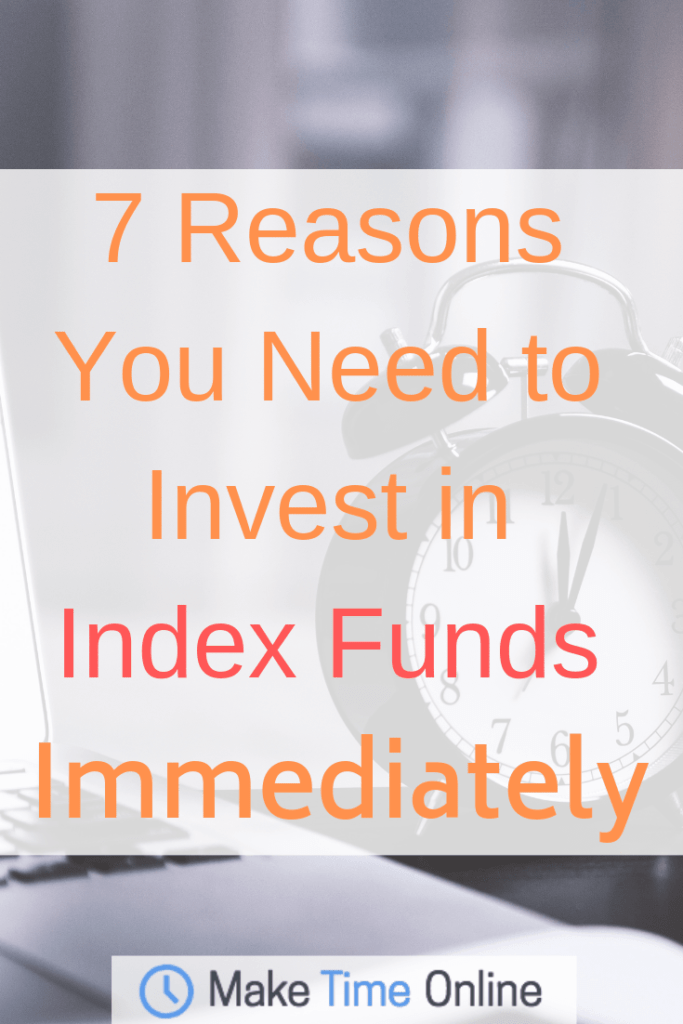MTO6- Podcast on reasons to invest in index funds. There may be affiliate links in this article, read the full disclaimer here. Note I am not a financial advisor these are just my opinions that have been formed from researching different studies and books. Please, please, please do your own research
This is a 3 part podcast series on index funds:
- 7 reasons you should invest in index funds today
- How to invest in index funds
- The ultimate passive income strategy using index funds
You probably know that finding ways to invest your money can be very time consuming and daunting.
However, it is possible to make a good return on your hard earned cash without having to spend hours in front of your computer screen. It’s also possible to do this without paying other people to manage a fund or relying on people pay you in the form of interest or rental income.
This podcast will show you 7 reasons why index funds are so highly recommended by the financial giants of the world.
If you’d like to see more detail about this podcast then check out this link:
What is an Index Fund?
An index fund is a public fund that requires no “active” management.
Basically, you don’t need to buy and sell individual stocks of certain companies, it will simply own all the stocks in the index (i.e. the 500 stocks in the S&P 500 index fund, which is the top 500 companies in the USA)
Simply put, there will be much lower fees that you pay to any brokers because it doesn’t require anyone to select stocks in certain companies.
As you continue to read on and listen to the podcast, you will realise this is the #1 that any investor should spend their time researching (how to lower the fees you spend on investments!)
Facts!
These are some of the facts that show why index funds are superior to mutual funds or the average individual investor!
- The US stock market has averaged 10.16% annual return between 1920 and 2016 – (1)
- The S&P 500 returned an average of 10.28% a year from 1985 to 2015 (if you invested $50,000 in 1985 that would be worth $941,613.61 in 2015) – (2)
- The average investor returned 3.66% during this same time (the result was $146,996 in 2015) – (2)
- A 15-year study in the Journal of Portfolio Management showed that 96% of mutual funds underperformed the S&P 500 stock market index fund – (3)
- Another study showed that 33 out of 195 (17.5%) mutual funds DISAPPEARED between 1979 and 1999. There’s almost a 1 in 5 chance that your mutual fund may go bust! And there’s no telling which ones they will be – (4)
Are you beginning to see why index funds are recommended by the smartest investors?
By periodically Investing in an index fund the know-nothing…Investment professionals #WarrenBuffett https://t.co/WiF9GwErFB pic.twitter.com/xjOmdtB8Yh
— Catalyst Finvest| Bogleheads| Simple Investing (@catalystfinvest) February 28, 2019
Here are some freedom facts from Tony Robbin’s book Unshakeable, which should help you to realise why you should be involved in the stock market:
- Corrections (fall by at least 10%) happen on average once a year since 1900
- Less than 20% of corrections turn into a “Bear Market” (fall by over 20%)
- Nobody can predict the market
- The stock market rises over time despite many short-term setbacks
- Bear markets have happened every 3-5 years, historically
- Bear markets become bull markets (see chart below)
- The greatest danger is being out of the market (see chart below)
Unless the current financial system drastically changes then inflation will carry on occurring. This is a big factor in the reason why stocks, bonds, property and all commodities keep going up in the long run.
Related content:
How our wealth is being stolen- the hidden power of inflation
Sources of Information
- Value Line Investment Survey- A Long-Term Perspective Chart 1920-2005 and Morningstar Performance Tracking of the S&P 500 from 2005-2016, www.morningstar.com
- Tony Robbins, “Unshakeable- Your Financial Freedom Playbook“, 2017
- David F Swenson, Unconventional Success, a Fundamental Approach to Personal Investment (New York: Free Press, 2005), 217.
- Robert D. Arnott, Andrew L. Berkin, and Jia Ye, “How Well Have Taxable Investors Been Served in the 1980s and 1990s?” The Journal of Portfolio Management 26, no. 4 (Summer 2000): 86.
- Mark Hulbert, “Index Funds Win Again”, February 2009, The New York Times, https://www.nytimes.com/2009/02/22/your-money/stocks-and-bonds/22stra.html?_r=0
- Andrew Hallam, “Millionaire Teacher- The Nine Rules of Wealth You Should Have Learned in School“, 2017
- Grant Sabatier, “Financial Freedom”, 2019
ACTION
Watch how incredible compound interest really is!
This is why you need to get investing… immediately!
Now, you may be wondering how you are supposed to actually have enough money to invest in index funds. The first step is to get your own finances in check. My wife, Sarah, and I have used the below financial statement template for the past 4 years, which has helped us to save money and invest more money.
Related content:
How we Save £30,000 a year and travel as teachers
Summary
There are so many reasons to invest in index funds as so many financial experts say! But here are 7 big ones:
- Don’t Argue With the Facts
- Beware of Mutual Funds Managers & Financial Advisors!
- Avoid Paying HIGH Fees! (Your main job as an investor)
- It Saves so Much Time!
- It Forces you to Buy low and sell high
- You CANNOT go Bust
- Don’t Worry About the Next Crash, remember the
To see these points in more detail check out this post
If you enjoyed this podcast then please subscribe and leave a review on iTunes right here.
Keep changing for the better
Mike
P.S. What reason do you think is the most important to invest in index funds?




